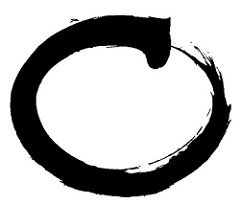Mohandas Karamchand Gandhi (1869 – 1948), commonly known as Mahatma Gandhi or Bapu (Father of Nation), was the preeminent leader of Indian nationalism in the Raj (British-ruled India). Employing non-violent civil disobedience, Gandhi led India to independence and inspired movements for non-violence, civil rights, and freedom across the world.
Gandhi was born in a Bania family in coastal Gujarat, and trained in law in London. He fought for the civil rights of Indians in South Africa, using non-violent civil disobedience. Returning to India in 1915, he set about organising peasants to protest excessive land-taxes. A lifelong opponent of “communalism” (basing politics on religion) he reached out widely to all religious groups. He became a leader of Muslims protesting the declining status of the Caliphate. Assuming leadership of the Indian National Congress in 1921, Gandhi led nationwide campaigns for easing poverty, expanding women’s rights, building religious and ethnic amity, ending untouchability, increasing economic self-reliance, and above all for achieving Swaraj—the independence of India from British domination.
Gandhi led Indians in protesting the national salt tax with the 400 km (250 mi) Dandi Salt March in 1930, and later in demanding the British to immediately Quit India in 1942, during World War II. He was imprisoned for that and for numerous other political offences over the years. Gandhi sought to practice non-violence and truth in all situations, and advocated that others do the same. He saw the villages as the core of the true India and promoted self-sufficiency; he did not support the industrialisation programs of his disciple Jawaharlal Nehru. He lived modestly in a self-sufficient residential community and wore the traditional Indian dhoti and shawl, woven with yarn he had hand spun on a charkha. He was a vegetarian, and undertook long fasts as means of both self-purification and political mobilisation.
In his last year, unhappy at the partition of India, Gandhi worked to stop the carnage between Muslims, Hindus and Sikhs that raged in the border area between India and Pakistan. He was assassinated on 30 January 1948 by Nathuram Godse who thought Gandhi was too sympathetic to India’s Muslims. 30 January is observed as Martyrs’ Day in India. The honorific Mahatma (“Great Soul”) was applied to him by 1914. In India he was also called Bapu (“Father”). He is known in India as the Father of the Nation; his birthday, 2 October, is commemorated there as Gandhi Jayanti, a national holiday, and world-wide as the International Day of Non-Violence. Wikipedia
The best way to find yourself is to lose yourself in the service of others.
The future depends on what we do in the present.
The law of love could be best understood and learned through little children.
The pure love of one soul can offset the hatred of millions.
The weak can never forgive. Forgiveness is the attribute of the strong.
There is more to life than increasing its speed.
There would be nothing to frighten you if you refused to be afraid.
There’s enough on this planet for everyone’s needs but not for everyone’s greed.
To lose patience is to lose the battle.
Truth alone will endure, all the rest will be swept away before the tide of time.
Whatever you do will be insignificant, but it is very important that you do it.
When I admire the wonders of a sunset or the beauty of the moon, my soul expands in the worship of the Creator.
Where there is love there is life.
You must not lose faith in humanity. Humanity is an ocean; if a few drops are dirty the ocean does not become dirty.
Your beliefs become your destiny.




